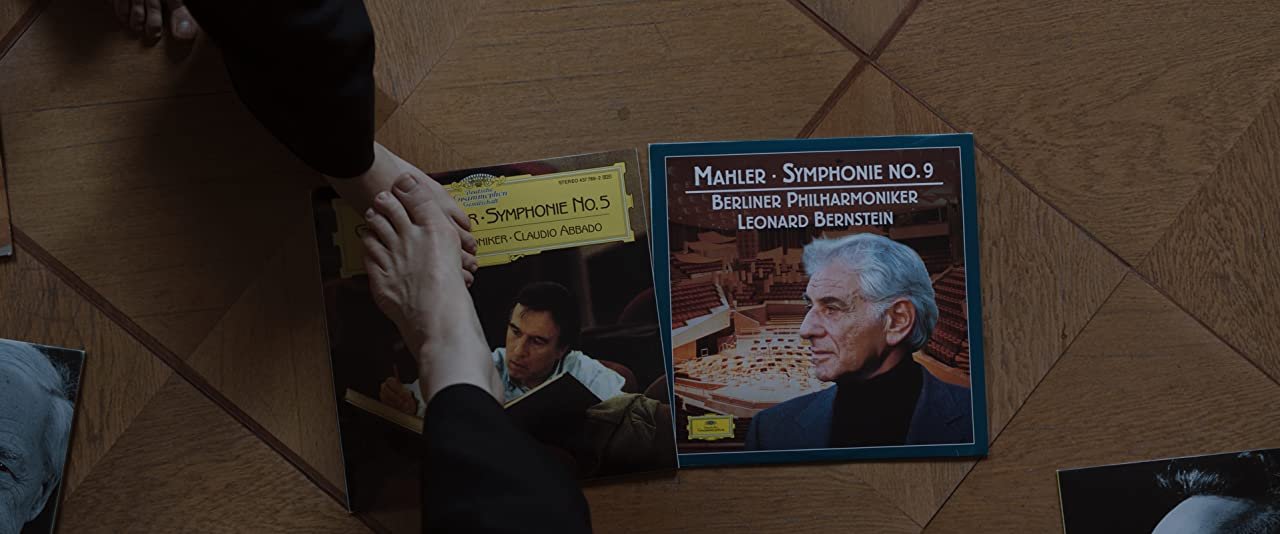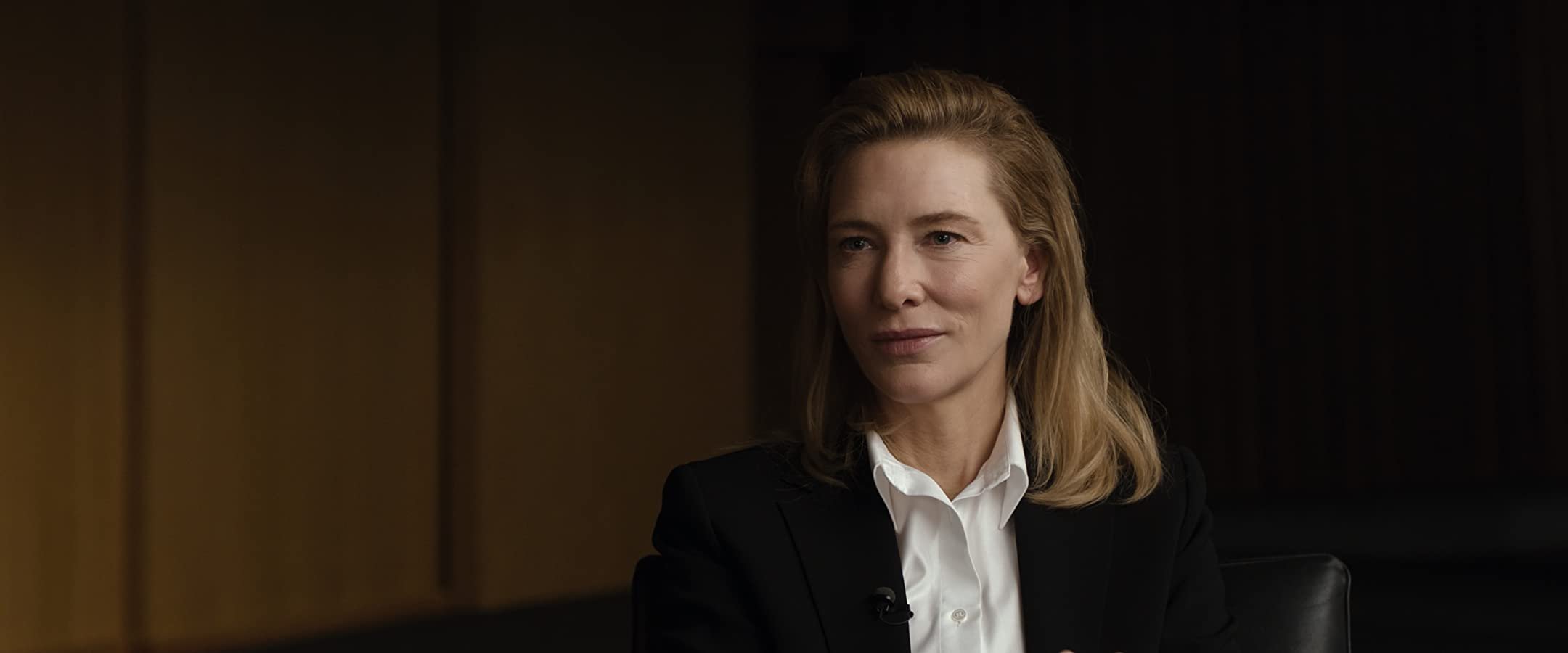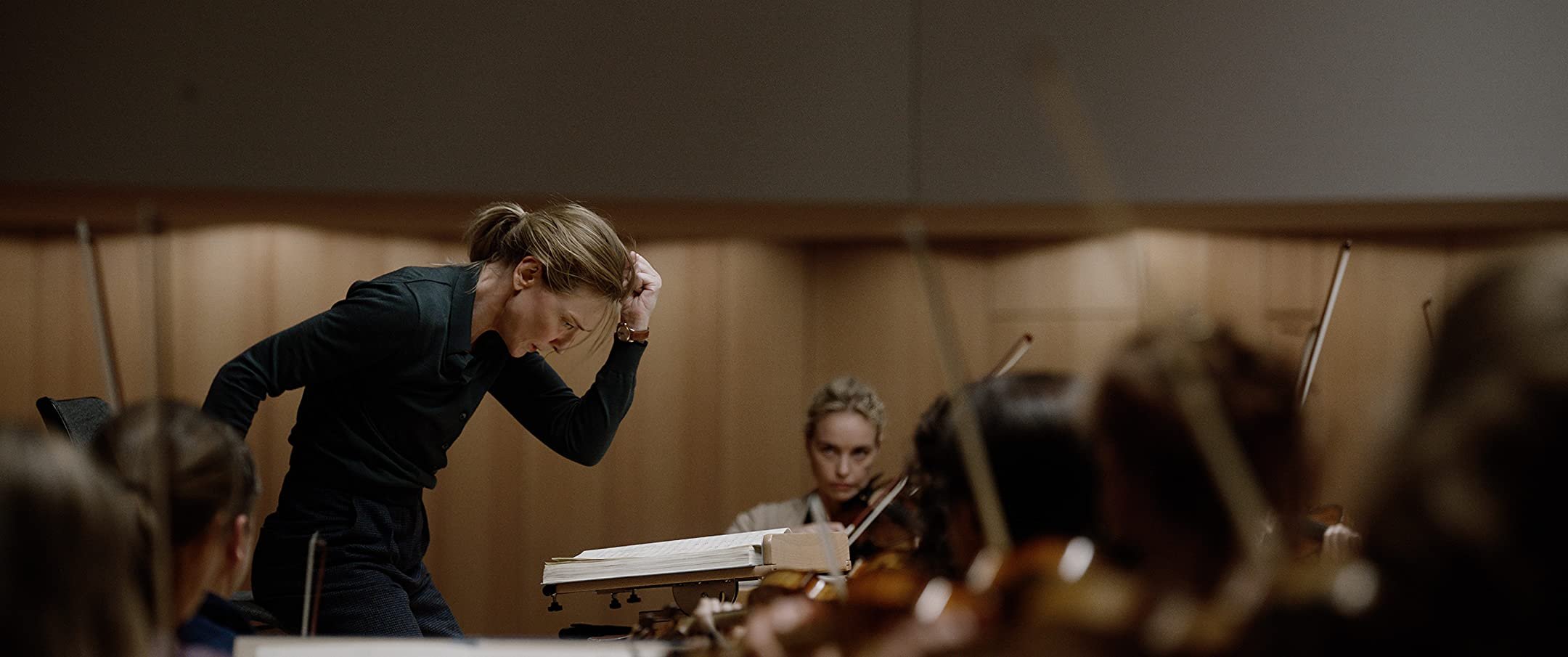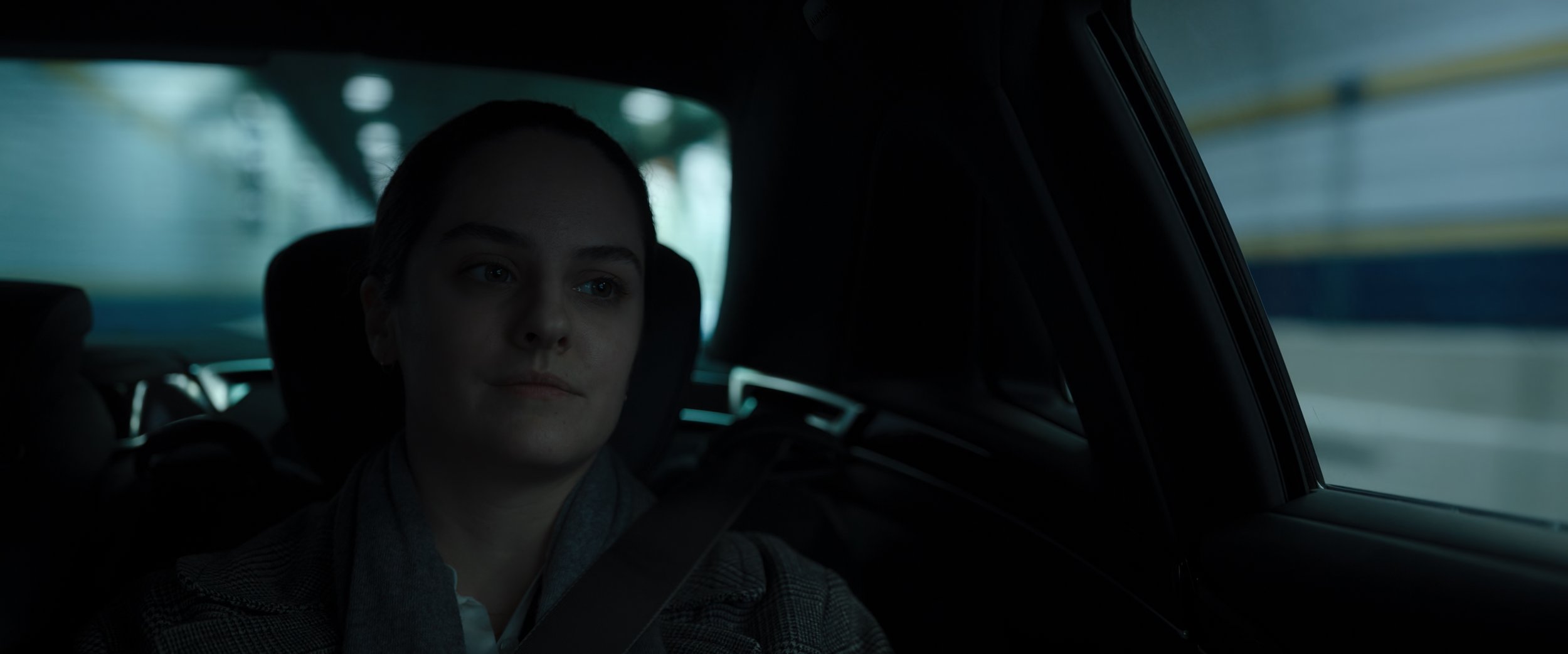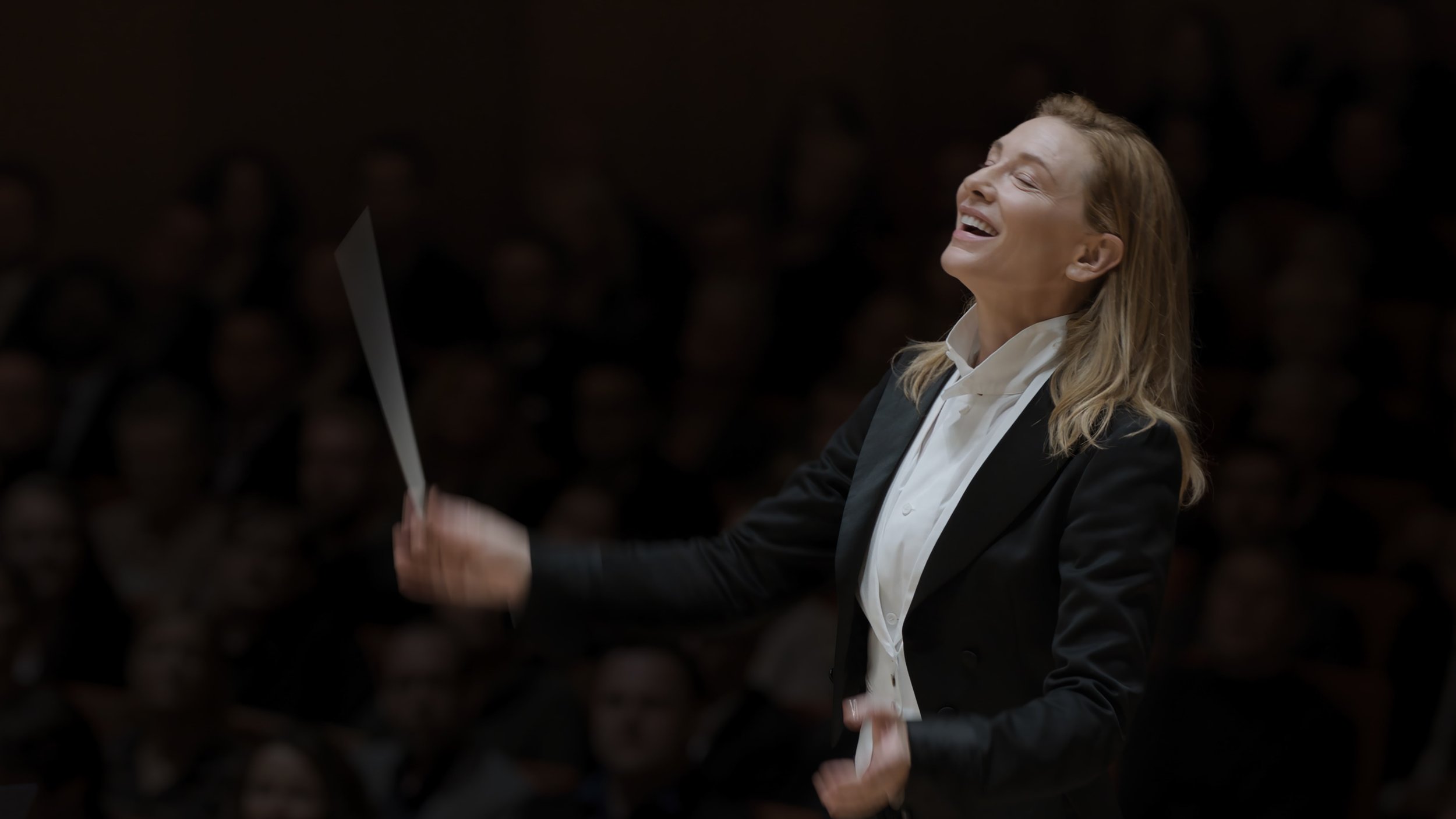Tar (2022)
Director: Todd Field
Starring: Cate Blanchett, Noemie Merlant, Nina Hoss, Mark Strong
Primary genre: Psychological
Secondary genre: Drama
Nominated for: Best actress, picture, director, original screenplay, cinematography, editing
“Tar” came out of nowhere towards the end of 2022 with little to no hype. An intimate character study from a psychological perspective, “Tar” dives deep and tastefully into the world of classical music composition and symphonic orchestras.
Similarly to what “The Wrestler” (2008) did for … wrestling, “Black Swan” (2010) for ballet and the “Joker” (2019) for comedy, “Tar” focuses on a particular profession, its influences and external environmental factors which lead to the desirable artistic output, in this case a symphony that Lydia Tar, a composing genius is working on. Echoing the masterful directional debut of Kogonada’s “Columbus” (2017), Field’s shots have a Peeping Tom quality; we experience solely from Lydia’s perspective what makes her tick creatively and most importantly, how she manipulates people to achieve her professional and personal desires with precise and monochromatic shots that favor emotional content under the lines of aesthetically pleasing architecture.
The film does not embrace black or white morality values leaving the audience to find where is the line between creativity and humanity. More often than not though, it blurs ethical boundaries on purpose. What from an outsider perspective would have seemed socially unacceptable, can be justified for the final goal.
Touching sensitive (depending on where you stand) modern social issues, Lydia is not using her gender to highlight the gaps and injustices inflicted upon her identify group (i.e., lesbians, women). In the marvelous opening under cinematographer Hoffmeister’s shots which encapsulate an infatuated with herself Lydia, she proceeds to dominate the conversation oozing sharp, wit, passion and encyclopedic knowledge around composers and their work. In an instant classic scene where she lectures her students (in a single take), Lydia deconstructs '“popular” arguments of cancel culture and talent minimalism, making a strong case about the importance of art.
Field’s script is wise enough to not force upon the audience this specific perspective opting to start a discussion about unfair dismissal of talent in favor of equity, equality and diversity just for the sake of it. Instead it supports (mostly) the fact that the type of morality you carry through life can affect not only yourself, but poison your goal and those around you in unpredictable ways. Lydia’s occasionally self-centered acts spill over her personal life and any behavior she employs to masquerade their consequences and her own insecurities make potentially things worse.
Had this main character being a man, “Tar” would have been a caricature. Yet, Lydia, besides excelling at what she does and having pure artistic intentions, she is in the position of the ultimate job waiver, a master manipulator behind and front the orchestra, hiring (or firing) people on a whim while her sexual favoritism for younger ladies is detectable enough among her peers and even her wife. Populated with several ambiguous sequences that offer plenty of room for analytical interpretation, “Tar” makes no solid case for in favor or against this deeply flawed, but fascinating character.
Blanchett, the film’s most precious asset and one of the greatest actress of all time, is present in every frame adding several intriguing layers to Lydia’s, cold, meticulous and almost otherworldly personality; a look of disapproval is enough to make you uncomfortable while her excellent speech skills can intimidate subtly those who lack such abilities. Giving the performance of a lifetime that is not confined by pseudomelodramatic effects but pure honesty, Blanchett deserves all the praise and accumulated accolades for her approach to such a complex individual.
Despite some infrequent stumbles - mostly in the form of a long running time and the inclusion of a young stereotypical Russian cellist who acts as a counterpoint of Blanchett’s finesse and sporting a ridiculous (fake) accent, “Tar” is a powerful vehicle that touches elegantly several themes in a rapidly changing society which can strip down a Titan within minutes. Indeed the pen (i.e., social media) is mightier than the sword. “Tar” will be studied in the years to come due to its nuanced and highly relevant content inside the set up of an attractive cinematic story that ultimately is missing from modern films. It is a rich and rewarding experience requiring a fascinating discussion among cinephiles afterwards. See this asap.
Excellent character study
+Blanchett is sensational
+Field’s precise direction
+Interesting presentation of modern social issues
+Nose dive character analysis
+Ambiguous proceedings
+Top notch cinematography
-A bit too long
-Russian cellist youthful stereotype


